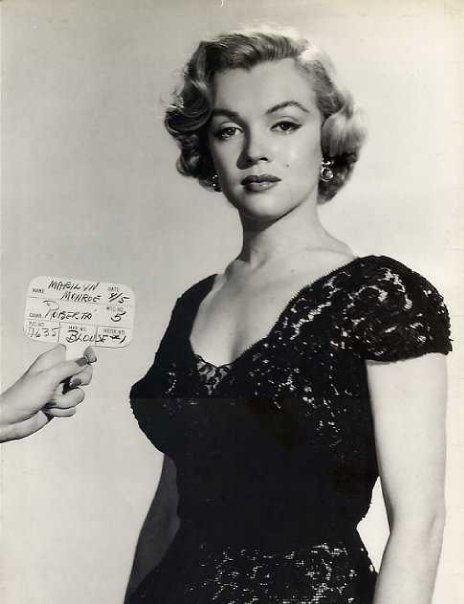
Marilyn’s estate is at the centre of yet another legal battle, according to the Hollywood Reporter.
“Virtual Marilyn LLC says it holds copyright registrations encompassing ‘audiovisual work and character artwork depicting a computer-generated virtual actress adopting the persona of Marilyn Monroe.’
The Marilyn Monroe estate has been threatening this virtual character for some time. More than two years ago, we wrote about a volley of legal letters upon talk that ‘Virtual Marilyn’ would be taken on the road to sing and interact with live music stars.
Since then, the Marilyn Monroe estate suffered a great legal loss. In August 2012, in the midst of a battle over licensed photographs, the 9th Circuit Court of Appeals ruled that the estate couldn’t claim in court anymore that the legendary actress was living in California at the time of her death. She was domiciled in New York instead. While such a detail as her place of residence at the time of a drug overdose might seem trivial, New York’s publicity rights laws are far less generous than California’s. Most importantly, New York doesn’t allow post-mortem publicity rights.
So forget about publicity rights, but what about other potential claims? The Monroe estate reportedly makes up to $30 million a year in licensing income, so the question is definitely important.
According to the new lawsuit, Monroe’s estate has conveyed word that ‘use of Marilyn Monroe’s identity and persona without the Monroe Estate’s prior authorization constitutes unfair competition and false designation of origin’ — claims grounded in the Lanham Act — and that its adversary couldn’t use or license ‘marks, names, logos, designs, avatars, or the like.’
So the company now owning ‘Virtual Marilyn’ is going to court for declaratory relief, citing both the previous 9th Circuit opinion, plus more precedents, like the U.S. Supreme Court’s very important 2003 Dastar ruling, which stands for the proposition that trademarks can’t be used as perpetual swords to counter copyrighted work falling into the public domain.
‘Accordingly, in view of these appellate precedents, it is difficult to fathom that the courts would somehow accord a longer period of private protection for a trademark than the time-period that governs the underlying publicity/persona rights from which the trademark interest derives,’ states the complaint filed in New York federal court by attorney Michael Wolk.
The plaintiff has designs of its own. It’s both attempting to knock down defendants’ intellectual property grab while maintaining its own authority to obtain trademark protection on its own ‘branding rights’ associated with the CG Marilyn Monroe. A ‘fractured ownership situation’ involving Marilyn Monroe is not a problem, it argues, because disclaimers can always be used to “make it clear to consumers that the Monroe Estate has no affiliation with the Virtual Marilyn character or the Virtual Marilyn brand.’
Interestingly, it’s remarked in the lawsuit that when the late actress was living, she never registered any aspect of her persona as a trademark and was conscious about who she belonged to.
As Monroe once said, ‘I knew I belonged to the public and to the world, not because I was talented or even beautiful, but because I had never belonged to anything or anyone else.'”
One Reply to “Monroe Estate Opposes ‘Virtual Marilyn’”